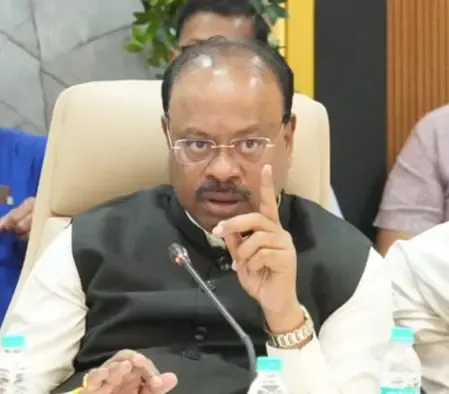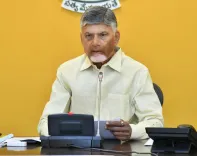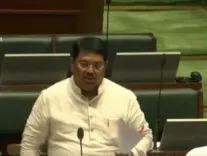Why Did the Maha Government Impose a Fine of Rs 56.68 Crore for Excess Sand Extraction?

Synopsis
Key Takeaways
- Illegal sand mining can lead to severe environmental damage.
- A fine of Rs 56.68 crore highlights the government's commitment to enforcement.
- Exceeding mining depth limits can violate Supreme Court rulings.
- Tree planting initiatives aim to enhance environmental sustainability.
- Accountability for contractors is being enforced through geo-tagging.
Mumbai, July 17 (NationPress) Despite restrictions allowing sand mining at a maximum depth of only 1 meter from the riverbed in the Gangapur-Vailwadi area of Chhatrapati Sambhajinagar district, illegal mining activities reached depths between 15 to 18 feet. This resulted in the extraction of an additional 18,489 brass of sand, prompting the imposition of a hefty fine of Rs 56.68 crore and the suspension of an official, as announced by Maharashtra Revenue Minister Chandrashekhar Bawankule on Thursday.
During a session in the state council, Minister Bawankule responded to a calling attention motion raised by Vikram Kale. He explained that the District Collector of Chhatrapati Sambhajinagar had authorized sand mining from the sand ghat at Mauje Sanav to support a water supply initiative for 373 villages in the Gangapur and Vaijapur talukas under the Jal Jeevan Mission. The Maharashtra Jeevan Authority had granted limited approval for the extraction of 9,540 brass, but the actual amount mined was reported to be 28,029 brass, leading to significant violations.
Minister Bawankule emphasized that exceeding the 1 meter excavation limit contravenes environmental guidelines aimed at protecting the natural water flow, cleanliness, and biodiversity of the riverbed. Such actions also breach a Supreme Court order, necessitating criminal proceedings against those involved.
In a related discussion, Public Works Minister Shivendra Raje Bhosale announced the government’s initiative to plant indigenous trees alongside all major highways and rural roads. This policy aims to promote environmental sustainability and ensure the survival of trees planted during road construction. He noted that a rule mandates planting ten trees for every felled tree, with funding for planting now contingent upon the successful completion of each stage of the project.
Bhosale also shared that measures are being taken to monitor the health of trees through geo-tagging and artificial intelligence, with contractors now held responsible for the maintenance of newly planted trees.





